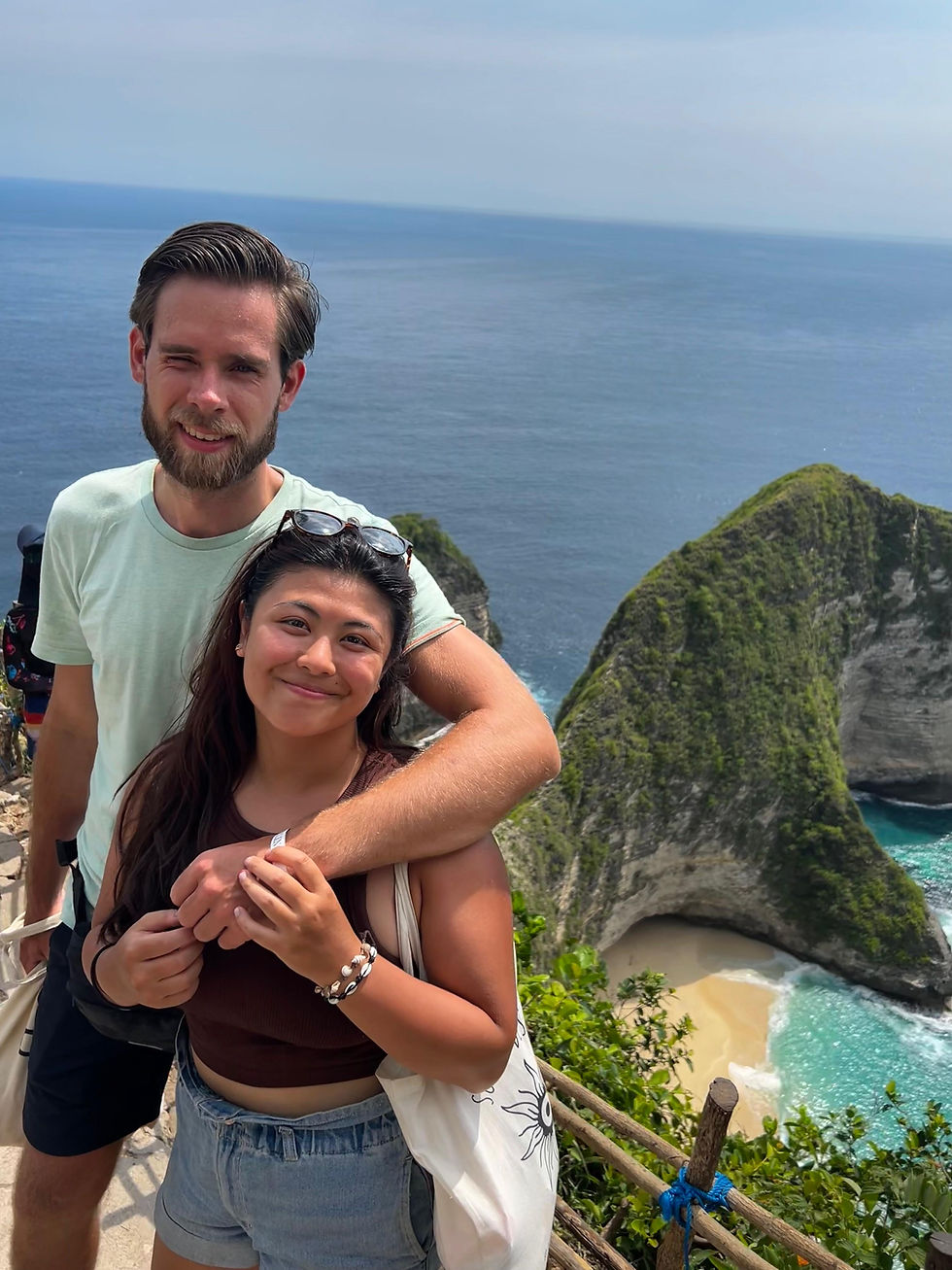Mixedness in Identity
- Nina Ashley Bach

- Sep 14
- 3 min read
Written by Nina Ashley Bach
Where to Start?
Growing up mixed, I spent the first half of my life identifying primarily as European. Raised in Southeast Asia—mixed, and within an environment that placed Westerners on a pedestal—it was easy, almost celebrated, to choose being European over the other parts of myself. It felt expected.
Everyone around me was mixed, so we didn’t even have a specific word for it—just “half this, half that.” Only later did I feel the weight of constantly having to describe myself that way.
During my master’s in colonial and global history, I was exposed to the origins of the word half, a remnant of the colonial term half-caste. The categorization of people based on ethnicity was perpetuated during Western colonialism as an effort to enforce social hierarchies and exert control. Providing time and energy to understand complex cultural backgrounds was not advantageous from an unjust labour and capital perspective. This continues to bleed into our present society, where we find diversity being dismissed or rejected.
Definitions, Terms, Words
The English language still struggles to define the identity of mixed people in a consistent way. Some of the terms I’ve encountered include multicultural, mixed, culturally diverse , and mixed heritage. I even once called myself mixed-race before being educated on racial theory and the social construction of the word race.
Whether it’s today, tomorrow, or next week, I highly recommend educating yourself on how terms like race and half-caste originated from Western colonial efforts to divide, conquer, categorize, and dehumanize—rather than represent or understand.
That said, I also acknowledge that for some, these words can offer comfort or a sense of belonging, as they’ve become deeply embedded in our language and social understanding. However, the first step to growth is transparency and conversation. Oftentimes, uncomfortable conversations but they must be had to garner further understanding and inclusivity.
Fetishization
Since moving to Europe, I’ve encountered the fetishization of ethnically ambiguous people—either through being white-passing or seen as “exotic.” There’s also a subtler fetishization that comes from people projecting identities onto you and stereotyping accordingly.
Personally, in Europe, I’m often perceived as Latina, despite having no roots there. Yes, it’s okay to guess wrong—but what I fail to understand is why people are so quick to label before asking. The audacity to deny my heritage even after I correct them baffles me.
You’re allowed to be interested, intrigued, even confused. But I draw the line at denying my heritage based on your assumptions.
Then comes the assumption about what kind of woman I am. Do you expect me to be spicy, docile, loud, dramatic? All of this is rooted in stereotypes, which, while seemingly harmless in thought, become damaging when they turn into demands or expectations placed on someone.
Why must women always be forced into ethnic and racialized boxes—like being called “fiery” if I’m Latina, “docile” if I’m Asian, “loud” if I’m Black, or “conservative” if I’m South Asian?
Denial Is a River in Egypt
Mixed kids understand the inner calculation that begins when someone asks, “Where are you from?” Should I give the long answer or the short one? And of course, there’s the infamous: “But where are you really from?”—again denying my initial answer because it doesn’t sit right with them.
This often comes wrapped in ignorance that we, somehow, are constantly expected to respond to with patience and understanding—even when that same courtesy is not extended to us.
East vs. West
Still, I recognize the privilege I had growing up in Indonesia, where my difference often garnered more respect than if I were not. Western roots are placed on a pedestal, and I was what many might call white-passing, bule (foreigner in Bahasa Indonesia), or Eurasian.
Yet in Europe, I am immediately the “other”—until my passport declares otherwise.

At the end of the day, I bleed the same as you. I have dreams and nightmares, the need to love and be loved, and the desire for community and belonging. And yet, here we are—still stuck within imaginary borders written by men in high places, fighting each other over who is more worthy of simply existing.
As I always do, I leave you with three questions to ponder, write down, or discuss. That part is up to you:
Which part of your identity comes to mind first?
What does mixedness look like to you? (Sexuality, nationality, gender, etc.)
How would you wish to be asked about your identity?
From my heart to yours, Nina
Poet, performer, workshop facilitator, mediator




Comments